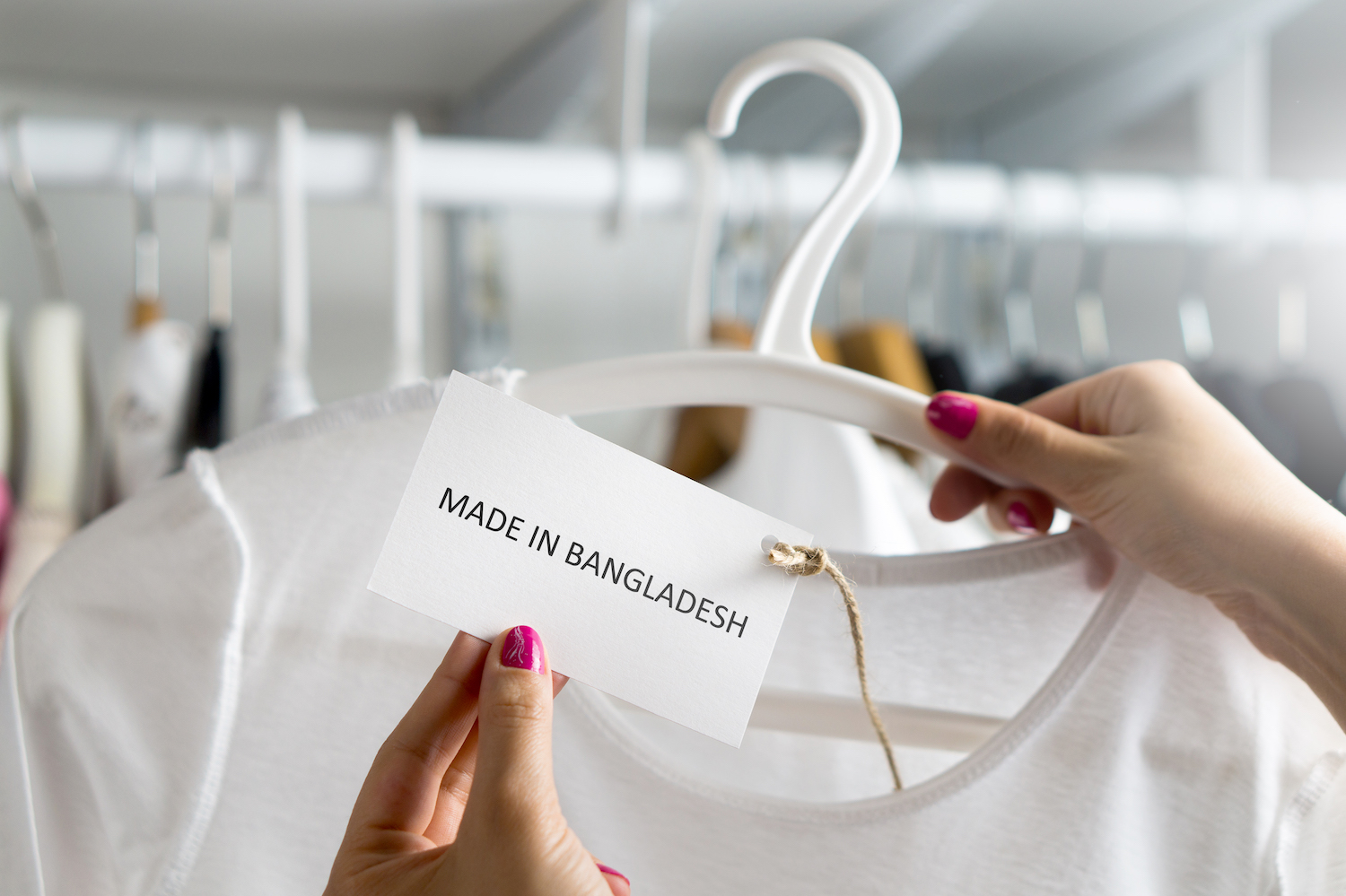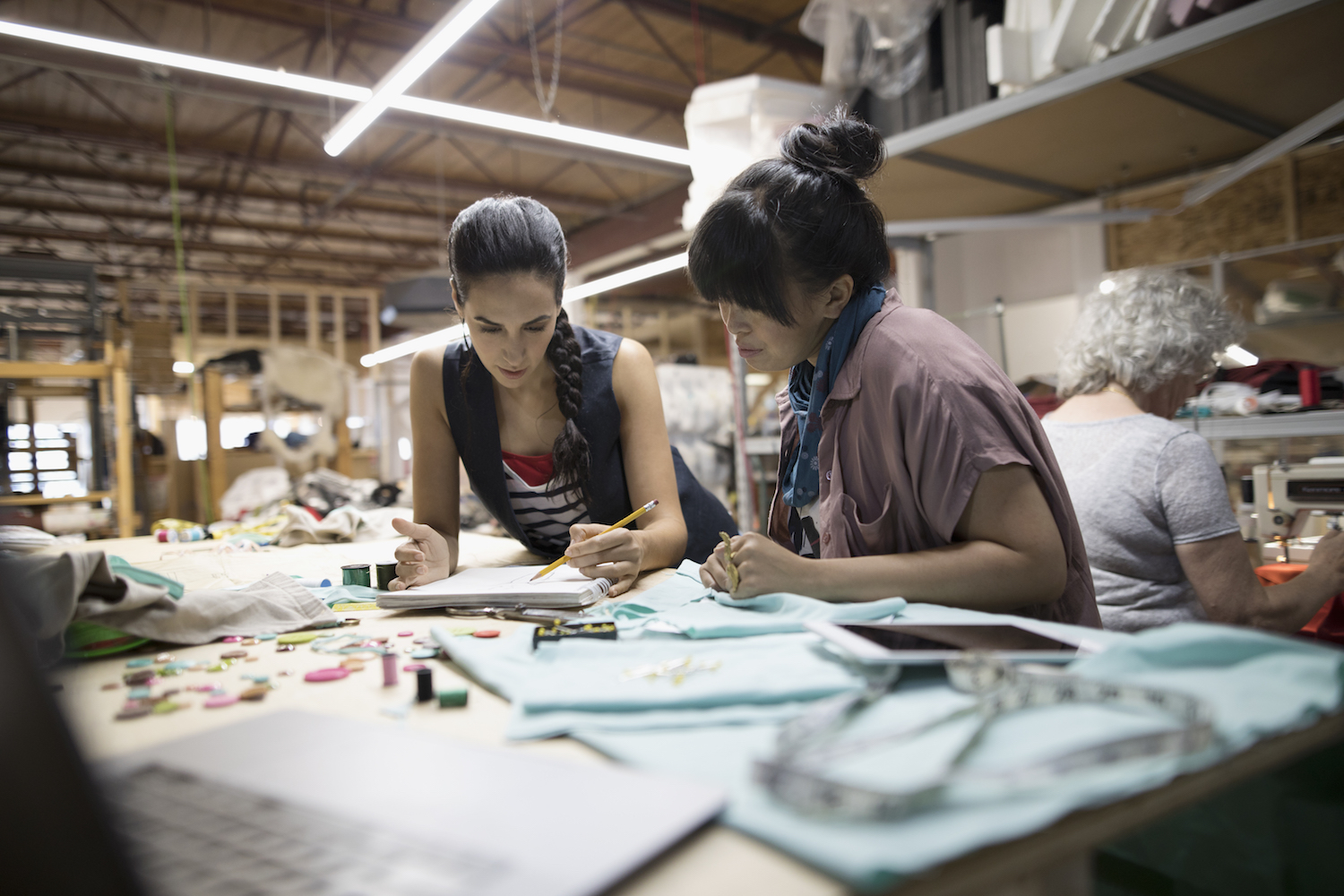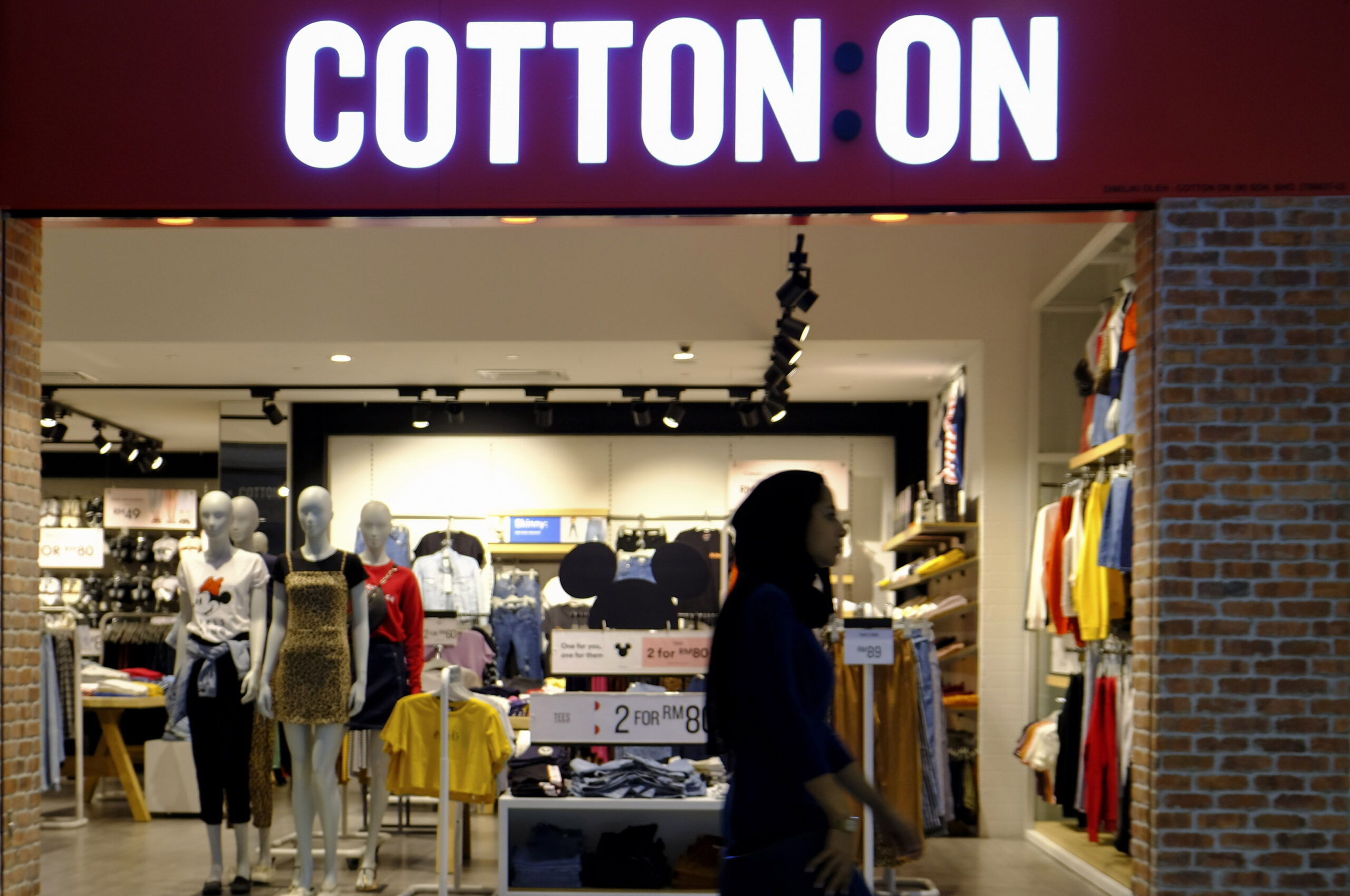Ethical shopping or ethical consumerism refers to the practice of purchasing fair trade, organic, cruelty free, sustainably produced and environmentally friendly goods.
It is possible to act engage in ethical shopping in a number of different and often simple, subtle ways.
Choosing fair trade, organic and cruelty free consumer goods is known as positive buying, and is arguably the most important form of ethical shopping because it directly supports socially minded and progressive companies.
Conversely, negative buying involves avoiding products which have a detrimental impact on communities, animals and the environment. These include high emission vehicles and mass produced fast fashion garments in factories who exploit workers’ rights and do not adhere to ethical standards.
On a larger scale, ethical shopping can extend to targeting major corporations in a bid to alter their business processes, such as the wholesale boycott of Nestlé which aimed to change the giant’s marketing of baby milk formula in developing countries.

How can you tell if a brand is ethical?
Start by checking the materials a garment is made from. Unless they are made from vintage, up-cycled or waste fabrics, the textiles used by sustainable clothing brands should be renewable or recyclable materials like linen, silk or hemp.
Organic cotton is also acceptable, as long as it is a biodegradable variety. Dyes should also by checked, as these can contain a whole host of nasty toxins and chemicals damaging to the environment.
Leather is never eco-friendly (unless it’s vegan) and in general using animal products in fashion garments is completely unethical.
Consult not-for-profit website such as the Environmental Working Group or Green Peace for credible criteria to determine whether or not a brand is sustainable.
The Ethical Fashion Report is a useful annual analysis which highlights what the fashion industry and individual companies are doing to address issues such as child labour and wage exploitation.
Since the first report was published by Baptist World Aid Australia in 2013, the organisation has tracked the progress of the fashion industry and in 2018 assessed the practices of 114 clothing companies.
The Ethical Fashion Report was first launched in response to the Rana Plaza disaster in 2013, which involved the collapse of an eight-storey garment factory building in Bangladesh.
The structural failure led to the deaths of 1,134 and the injury of more than 2,500 people, most of whom worked as apparel manufacturers and machine operators for major international brands including Benetton, Bonmarché, Monsoon Accessorize, Mango, Matalan, Primark and Walmart.
Another reaction to Rana Plaza was the creation of the Fashion Transparency Index which shows improvements in the ethical practices of big brands around the world.
Designer names from the Paris based luxury fashion collective Kering Group – which includes Gucci, Yves Saint Laurent (YSL) and Balenciaga are all highly rated for ethical operations.
High street brands such as H&M, Zara and Adidas also perform well after implementing fresh initiatives to make their materials, supply chains and production methods more publically transparent and more environmentally conscious.

What are the ethical principles in fashion?
According to the government resource Business Victoria, there are five fundamental ethical principles in fashion.
1. Identify key outcomes in the design brief to minimise the life-time environmental impact of each garment. Designers should consider how the pattern will be laid on flat fabric, the amount of waste generated in manufacturing, any potential ways of reducing waste and any potential ways of reducing labour costs.
2. Select sustainable materials to minimise wear, tear, stains and specialist cleaning requirements. Natural fabrics like cotton and bamboo have a lower environmental impact than their synthetic counterparts, making them preferable to materials like polyester or spandex.
Where sustainable fabrics are not suitable for the entire garment, try a composite approach. This involves blending natural and synthetic fabrics such as cotton and polyester, which has been shown to create a long-lasting product with less environmental impact than a wholly synthetic garment.
Once you have created sustainable or ethical garments, aim to have the collection certified organic to generate publicity and goodwill around the brand.
3. Minimise waste during pattern making. Invest in textiles with repeat patterns (that is, no beginning or end) so the entire roll of fabric can be used.
4. Opt for ethical garment creation by ensuring textile workers involved in the construction of the product are operating under ethical conditions.
5. Reduce waste in packaging by considering how to market the finished product and finding a local service which offers recyclable packaging materials.
New Idea takes a look at some of Australia’s biggest brands to see how they fare in the latest Ethical Fashion Report.

Witchery
Witchery is an Australian women’s and children’s clothing company, part of the Country Road Group.
The brand is famous for its White Shirt Campaign which has raised $10 million AUD to date for ovarian cancer research.
In recent years Witchery has made progress in terms of its environmental consciousness, incorporating eco-friendly materials into their garments.
They have also signed the Australian Packaging Covenant and met their targets for emissions reduction in 2016.
The brand also received a ‘Good’ rating for its treatment of workers based on the 2018 Ethical Fashion Report, and was awarded the top score for their Supplier Code of Conduct.
Good On You ethical reviewers have praised the label for its commitment to “leading the way in sustainability in Australia”.
David Lawrence
In 2015, major Australian fashion brand David Lawrence was among a host of labels named and shamed for failing to prevent the exploitation of their workers who make garments in sweatshop conditions.
David Lawrence specialises in womenswear, and the brand has recently cleaned up its act to a degree receiving a C+ overall rating from the Ethical Fashion Report in 2018.
While David Lawrence scored an A for policies, they fared significantly lower in other categories taking a C for supplier relationships and a dismal D for worker empowerment.
Tommy Hilfiger
Globally beloved fashion brand Tommy Hilfiger has been a household name for men’s, women’s and children’s clothing for decades.
In 2018 the US-based brand received a B- overall grade in the Ethical Fashion Report, with an A+ for policies and a B- for traceability and transparency.
According to Reference.com, Tommy Hilfiger’s major manufacturing location is in Saipan, a territory of the United States in the Northern Mariana Islands of the Pacific Ocean.
Miss Shop
Australian women’s wear brand Miss Shop received a C+ rating in the 2018 Ethical Fashion Report.
The label manufactures budget clothing and underwear and is stocked at online at Myer.
Although the basic fashion brand was awarded an A rating for policies, it fared poorly in the worker empowerment, auditing and supplier relationships categories.
Cotton On
Cotton On received an A grade in the 2018 Ethical Fashion Report.
Cotton On Group operates under an Ethical Framework to “make a positive difference in the lives of everyone they touch”.
The brand collaborates with local partners to source sustainable fabric, empowers its’ network of suppliers, garment workers and farmers through policy and education and has a fully transparent supply chain from start to finish.
The company sources materials and products from a number of locations worldwide, with the majority of suppliers located in Australia, China, India and Bangladesh.
Cotton On is a global fashion brand stocking clothing, footwear and accessories for men, women and children.

Cue
Cue is one of just 85 Australian-made brands accredited by Ethical Clothing Australia, but it received a relatively average overall C rating in the 2018 Ethical Fashion Report.
The label fared poorly when it came to traceability, transparency and worker empowerment.
City Chic
Plus size women’s fashion brand City Chic received a C+ overall rating in the 2018 Ethical Fashion Report.
City Chic is a premium Australian brand dedicated to curvy females with sizes running from 14 through 24.
Decjuba
Perhaps the worst offender in Australia, women’s fashion and accessories brand Decjuba failed the test in the 2018 Ethical Fashion Report in all categories except policy where it received a C grade.
The brand hit back at the result by issuing a statement about Baptist World Aid and the report itself, claiming the report could be misleading to consumers and the research team behind the survey could not provide verified details to support the accusations.
“At Decjuba, we have a very clear mandate around social and ethical compliance, we hold ourselves and our suppliers accountable to clear principles.
“Our suppliers comply with a contract which sets out our own set of non-negotiable principles regarding working conditions, wages, animal rights, sustainability and corruption.
“Each of our factories is audited by an external regulator, and our team visit the factories that we partner with to ensure that our code of conduct is being upheld.
“We have long-standing relationships with our factories, some of which we have collaborated with for more than 20 years,” the full statement read.
Rockmans
Australian online fashion outlet Rockmans was slapped with a dreadful D+ rating in the 2018 Ethical Fashion Report.
The brand came in for criticism for its traceability, transparency, auditing and supplier relationships and failed outright in the worker empowerment section.
The brand describe themselves as “committed to ensuring all supplier meet and comply with the Ethical Trading Initiatives Base Code”, but in 2015 the Australian Fashion Report found Rockmans and was one of the worst offenders when it comes to ethical violations.
Julius Marlow
Melbourne-based footwear brand Julius Marlow received a C+ rating overall in the 2018 Ethical Fashion Report.
The shoe producer fared well in the policy and transparency analysis but less so in their supplier relationships and worker empowerment.
The company is part of the Australian Brand Collective which stands for ethically sourced apparel and footwear.
Uniqlo
Basic fashion favourite Uniqlo received a D+ overall score in the 2018 Ethical Fashion Report, with an A- for policies but an out and out F for worker empowerment.
According to Good On You, the Japanese fast fashion brand is taking steps in the right direction when it comes to environmental sustainability, but continues to lag behind in the labour area.
It also received a pass from Oxfam’s Naughty or Nice transparency survey relating to where their clothes are manufactured.
However, the company was ranked ‘Not Good Enough’ based on the 2018 Ethical Fashion Report in terms of paying a living wage and production transparency.
A 2016 report from War on Want accused Uniqlo of hiding human rights violations behind ethical claims.
Bardot
Launched in 1996, Bardot is a fast fashion Australian brand committed to getting the latest trend on the shop floor before any other outlet.
Bardot stocks womenswear and children’s clothing through its offshoot Bardot Junior.
Bardot received a low D grade in the 2018 Ethical Fashion Report and an abysmal F in the worker empowerment category.
David Jones
Australia’s best known luxury department store came out with a B- overall rating in the Ethical Fashion Report.
In recent years the giant has started to stock a larger number of Australian brands ad eco-friendly labels including Viktoria and Woods, Kitx, Mimco (part of the Country Road Group), Nobody Denim and organic cotton brand Bassike.

Myer
High end department store Myer received a C+ overall rating in the 2018 Ethical Fashion Report, scoring well for policies, traceability and transparency but less so for supplier relationships and worker empowerment.
Myer stock some major ethical fashion brands, most notably the Ethical Clothing Australia accredited Veronika Maine, White Suede and Misha Collection.
Also available from Myer are brands like outdoor wear giant Patagonia who are international leaders in the sustainable fashion space as well as the Country Road Group who has its own ethical fashion initiative.
Melbourne made Nobody Denim is also stocked at Myer as well as Cue which offers timeless women’s wear designed to last.
When it comes to ethical luxury options, Myer is home to possibly the strongest celebrity voice in the sustainable, fair trade fashion world: Stella McCartney.
Big W
Australian brand Big W offers a wide range of products for women, men, kids and babies as well as toys, homewares, electronics, gaming and DVDs.
The one-stop department store was awarded an overall C rating by the 2018 Ethical Fashion Report, and has come under fire from charities like Oxfam for insufficient payment of factory workers which fuels the continuation of poverty wages.
Oxfam compare Big W to Kmart, who have made significant advances in their commitment to pay a living wage.
The brand has improved its practices and policies in recent years by taking their factory lists public and revealing the locations where their clothes are manufactured.
Many of their garments and products are made in Bangladesh.
Kmart
Australia’s favourite bargain department store was awarded a respectable B+ overall rating in the 2018 Ethical Fashion Report.
Kmart was praised for revealing the locations of its overseas factories in the wake of the Rana Plaza disaster.
The brand has also taken the step of joining ACT (Action, Collaboration, Transformation) which is a joint fashion and industrial initiative aiming to raise wages to a fair living standard.
The majority of Kmart products are made in Bangladesh, with a smaller quantity produced in Pakistan, Thailand, Vietnam, Malaysia, Indonesia and India.
 Getty Images
Getty Images



